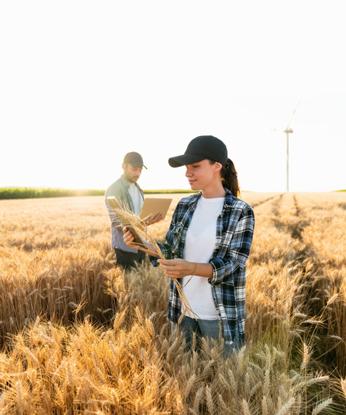Bem-vindo ao EU-FarmBook
O EU-FarmBook desenvolve uma base de dados interactiva de fonte aberta em toda a UE. É o local onde os agricultores, silvicultores e consultores se inspiram para inovar. Reúne materiais úteis para a prática, como vídeos, manuais de utilizador, infografias e muito mais.

